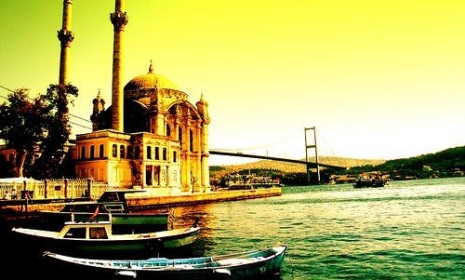Also of interest ... in exploring foreign lands
Country Driving by Peter Hessler; Nothing to Envy by Barbara Demick; The Last Train From Hiroshima by Charles Pellegrino; A Dead Hand by Paul Theroux

A free daily email with the biggest news stories of the day – and the best features from TheWeek.com
You are now subscribed
Your newsletter sign-up was successful
Country Driving
by Peter Hessler
(Harper, $28)
The Week
Escape your echo chamber. Get the facts behind the news, plus analysis from multiple perspectives.

Sign up for The Week's Free Newsletters
From our morning news briefing to a weekly Good News Newsletter, get the best of The Week delivered directly to your inbox.
From our morning news briefing to a weekly Good News Newsletter, get the best of The Week delivered directly to your inbox.
This on-the-ground account of contemporary China won’t satisfy those who like big questions asked and answered, said Jeffrey Wasserstrom in Time. Peter Hessler, a New Yorker correspondent, merely records what he sees both on a 7,000-mile road trip and while living in a remote rural town. With a “characteristic blend of empathy, insight, and self-deprecating humor,” he captures the fast pace of change in a large, complex nation that is being transformed in the blink of an eye.
Nothing to Envy
by Barbara Demick
(Spiegel & Grau, $26)
A free daily email with the biggest news stories of the day – and the best features from TheWeek.com
Barbara Demick’s “groundbreaking” portrait of the lives of six ordinary North Korean citizens radically expands our knowledge of the group’s secretive homeland, said John Delury in Slate.com. Kim Jong Il’s once-prosperous nation endured “one of the deadliest famines in modern times” a decade ago. Demick interviewed defectors and wove together this unprecedented narrative. “Elegantly structured and written,” the book is a testament to the power of literary nonfiction.
The Last Train From Hiroshima
by Charles Pellegrino
(Holt, $27.50)
Charles Pellegrino’s new book is “not for the weak-stomached,” said Dwight Garner in The New York Times. A “clear-eyed catalogue” of the horrors inflicted on victims of the two atomic bombs dropped on Japan in 1945, it deftly synthesizes countless earlier memoirs and archival materials. As many as 165 people somehow survived both bombings. Other citizens became blackened, “ant-walking alligators”—eyeless, faceless figures with only red holes where their mouths used to be.
A Dead Hand
by Paul Theroux
(Houghton Mifflin, $26)
Paul Theroux’s “evocations of India” are the best things in his new novel, a first stab at crime fiction from one of our great travel writers, said Tim Rutten in the Los Angeles Times. The story of a burned-out magazine scribe who becomes enthralled with an American heiress while investigating a boy’s death at a Calcutta hotel, it’s far too haphazardly plotted. The parts to enjoy are when the “smirking, insincere” journalist pokes into the city’s darker corners, sounding a lot like his perceptive creator.